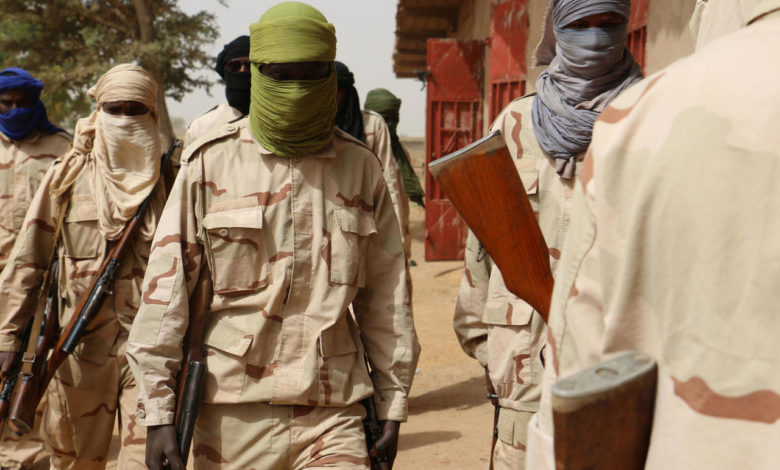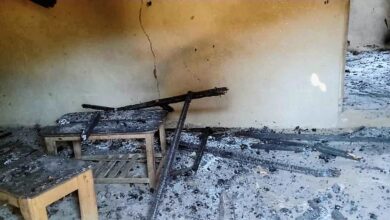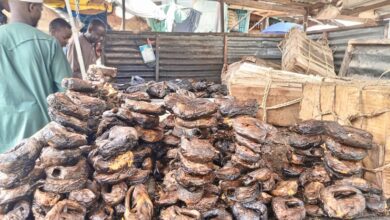Mali Plunges Into More Violence After Releasing 200 Jihadists

Mali has plunged into violence with increasing jihadist attacks following the release of over 200 jihadists by the interim government of the country.
Since the release, which has been denounced by a large segment of the Malian population and independent observers of the security situation in the country, attacks have been on a steady rise.
The most recent and bloody attack is on the village of Farabougou in the Segou region, within the centre of the country and very close to the capital, Bamako.
The village was completely isolated from the rest of the country by armed men who had encircled it in spite of the presence of soldiers of the United Nations Multidimensional Integrated Stabilisation Mission in Mali (MINUSMA).
Following the attack, the villagers have been forced to remain indoors because of the inability of MINUSMA and the national army to liberate them from the rebel imposed ‘quarantine’.
In a communiqué issued by the government, a copy of which HumAngle managed to obtain, the authorities in Bamako have tried to justify their delay in taking action to liberate Farabougou on the excuse that the roads are impassable.
According to the Malian authorities, an aerial surveillance system has been put in place to monitor the activities of the jihadists in the village.
They also said a convoy was being prepared to carry foodstuff and money to the inhabitants after their liberation.
Negotiations are still ongoing between the Malian authorities and the jihadists for the liberation of the village. Most Malians see this hostage situation as a result of the bad decision the new Malian authorities took to release the jihadists.
Meanwhile, the French army is yet to digest the to free the jihadists in view of the fact that it has lost several troops in the fight against jihadists in the Sahel.
Proof of this disquiet is that the forces of the French Operation Barkhane present in the north and centre of the country proceeded to arrest several jihadists a few days after the release of the 200.
The reason for the arrests is to put pressure on the jihadist groups, because the Islamic State in Greater Sahara group took credit for three terrorist attacks recently carried out in various parts of the country against Malian armed forces. This was patent proof that the Malian authorities are yet to see the last days of terrorist groups within their territory.
Thus, the new authorities in Bamako must weigh the consequences of their decision to release many dangerous terrorists and putting in danger the lives of the men and women struggling for their daily bread.
Terrorist groups such as the Group of Support to Islam and Moslems, Etat Islamique and AQMI still have their bases in Mali and continue to visit terror on populations, the national army and foreign forces in the country fighting against terrorism in the Sahel.
In the same village of Farabougou, 12 Malian soldiers were killed in an ambush by terrorists around Bankhass and near the Parou Bridge.
On the other hand, the Malian army has announced the killing of at least 13 terrorists and destruction of two vehicles during mopping operations within the zones attacked by jihadists of the Group of Support to Islam and Moslems.
Last week, a soldier of MINUSMA was killed and one other seriously wounded in an explosion in the northeast of the country.
In a release, the United Nations mission stated that it was around 13:30 that a MINUSMA vehicle hit a land mine or an explosive engine about 50km to the town of Kidal which led to the death of the soldier and the wounding of others.
A source with knowledge of the attack revealed that the MINUSMA vehicle was in a convoy escorted by UN soldiers, carrying supplies to the Egyptian contingent with MINUSMA.
After the attack, the head of the UN Mission in Mali, Mahamat Saleh Annadif, said MINUSMA would not allow itself to be intimidated by such attacks and remained determined to support the government and people of Mali in their efforts to bring back lasting peace to their country.
Since its deployment in 2013, more than 220 deaths have been recorded within the ranks of the UN Mission in Mali, with 130 of the deaths resulting from hostile action.
Sources within the Malian military are of the opinion that the recently released jihadists who have decided to retake up arms against the Malian military, the French Barkhane forces and MINUSMA soldiers, were involved in the recent attacks in the country.
The Group of Support to Islam and Moslems which claimed responsibility for the three recent attacks against the Malian armed forces was the principal negotiator for the release of the jihadists in exchange for the release of Malian opposition leader Soumaila Cisse, French national Sophie Petronin and other hostages.
This is an indication that the freed jihadists coordinated and executed the murderous attacks of a fortnight ago and which attacks are due to be intensified, according to intelligence gathered by Malian security forces.
The reason is because the jihadists who had spent several months behind bars are thirsty for revenge against a Malian army which is ill-equipped and not well prepared for such attacks.
Contrary to what the Malian authorities hoped for after releasing the jihadists, the country is rather being plunged into further violence by the same jihadists.
In taking the decision to release the jihadists, the new Malian authorities had hoped for a return to the negotiating table with view to a return to peace.
However, the recurrent attacks by the jihadists are an indication that the rebels have sounded an end to recreation and so the army should on its part be prepared for the unknown.
The jihadist groups have not only benefitted from the release of 200 of their fighters but pocketed 10 million euros, which is not negligible manna towards the reinforcement of their military capacity in the north and centre of the country.
Since 2012, Mali has been going through an unprecedented security crisis in the north and centre.
Following the assassination of Libyan leader, Mouammar Kadhafi, jihadist fighters from Libya invaded the country and installed their bases in the north of Mali with the goal of installing an Islamic state.
After the failure of this attempt, the groups dispersed throughout the north and centre of Mali forcing millions of people to flee to the Malian capital and other big towns in the country
Since the release of the 200 jihadist prisoners and the return of hostilities, Malians fear for the future of their country which risks being taken over by armed groups.
In the meantime, Malians are trying to understand the reasons why the new authorities in Bamako took the decision to release the jihadists whereas thousands of Malian soldiers have been dying from the bullets of terrorists since 2012.
HumAngle is reliably informed that a large segment of the Malian military is finding it hard to swallow the decision.
Support Our Journalism
There are millions of ordinary people affected by conflict in Africa whose stories are missing in the mainstream media. HumAngle is determined to tell those challenging and under-reported stories, hoping that the people impacted by these conflicts will find the safety and security they deserve.
To ensure that we continue to provide public service coverage, we have a small favour to ask you. We want you to be part of our journalistic endeavour by contributing a token to us.
Your donation will further promote a robust, free, and independent media.
Donate Here





